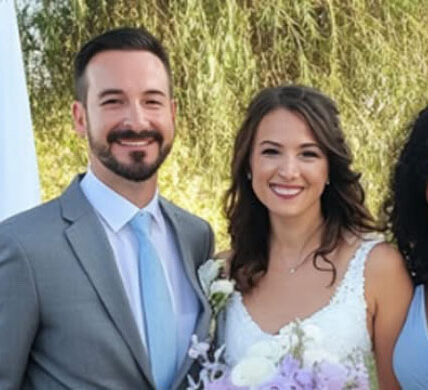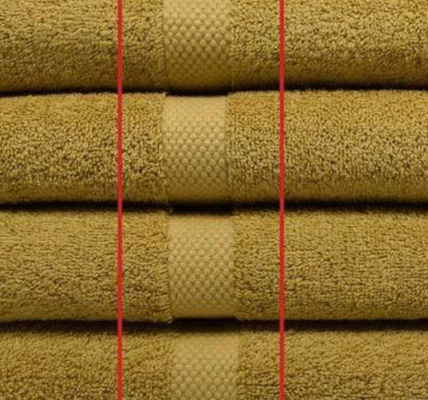My daughter’s school emailed about a “concerning drawing” she’d made. I expected monsters or blood—typical six-year-old stuff. But when I arrived and saw it, my stomach turned. There we were: me, her, and a tall woman with no face. Her teacher leaned in and whispered, “She says that’s the lady who tucks her in when you’re gone…”
At first, I laughed a little too loud. It felt ridiculous—like something out of a horror movie. But then I looked at the drawing again. There was something unsettling in it, something I couldn’t quite shake. The faceless woman wasn’t scary in the drawing—just… there. Looming behind us. Watching.
I asked my daughter, Ayla, about it that evening. She was munching on goldfish crackers, her curls bouncing as she nodded earnestly. “Yeah, Mama. She comes in after you go to sleep. She sits on my bed and sings sometimes. She has long hair, but no face. But she’s not mean.”
I froze mid-step. “Sweetheart, when did you start seeing her?”
“I dunno,” she shrugged. “When you started working at night more.”
I’d picked up extra shifts at the hospital—double shifts, really—after my ex, Dion, decided that child support was more of a “suggestion” than a responsibility. Bills piled up faster than I could breathe. I was already sleeping maybe five hours a night. The thought of my daughter imagining someone—something—tucking her in because I wasn’t there hit me hard.
So I started coming home earlier when I could. I’d slip into Ayla’s room and sit beside her until she drifted off. No weird women. No long hair or faceless anything. Just my daughter and her beat-up unicorn pillow. I figured maybe the drawing was just a cry for attention. Guilt mixed with exhaustion. I let it go.
Until I found a long strand of dark hair on Ayla’s pillow.
We’re both light-haired—me a dusty blonde, Ayla even lighter. The hair was thick, dark, definitely not ours. I stood there holding it like it might bite me. For a second, I actually looked over my shoulder, which made me feel insane.
Then I did what any rational mom would do: I changed the locks. Twice. I even bought a cheap nanny cam, though it was more of a motion-sensor baby monitor I rigged up in Ayla’s room. I didn’t tell her. I didn’t want to scare her—or make her think I didn’t believe her.
Weeks passed. Nothing on the footage. Not even a flicker. The hair? Could’ve been from daycare, or stuck to a toy, or a friend’s mom during a sleepover—I told myself anything to sleep at night.
Then one afternoon, while folding laundry, I found something that turned my blood cold.
Tucked deep in the back pocket of Ayla’s overalls was a note. Written in childish, looping print.
“She misses you. She sings when you cry.”
I sat down hard on the floor. My hands shook. I called Ayla in. “Sweetheart, who wrote this?”
She looked at it, blinked, and said, “I didn’t write that. Maybe she did.”
“Who?” I asked, trying not to panic.
“The lady,” she said simply. “She told me you were really sad, and that I’m supposed to give you more hugs.”
I didn’t know whether to cry or laugh. Part of me wanted to believe it was some internal coping thing—a way for Ayla to process my stress, my late nights. But another part of me, a part I didn’t like, started to wonder: what if someone was coming into my house?
I called the police. They sent an officer out, who checked all the locks and told me I probably had a vivid kid with a wild imagination. No signs of forced entry. No fingerprints that weren’t ours. He left me with a pamphlet on child anxiety.
I still couldn’t sleep.
Then something happened that shifted everything.
One night, I came home earlier than usual. I’d been sent home sick—a stomach bug that left me dizzy and gross. I didn’t even text the sitter, thinking I’d be home before Ayla’s bedtime anyway. But when I opened the door, the living room TV was off, the lights dim. No sounds.
Too quiet.
I crept down the hall and peeked into Ayla’s room.
There was someone sitting on her bed.
Tall. Hair down her back. Silhouetted in the glow of Ayla’s nightlight. My legs locked.
Then she turned—and it was my sister.
I nearly collapsed.
“Sanvi?” I croaked. She looked up, startled, clearly not expecting me.
She stood quickly, brushing off her pants. “You’re home early.”
“What the hell are you doing here?” I whispered sharply, stepping fully into the room.
Ayla, half-asleep, murmured, “Hi Mama,” and rolled over.
Sanvi motioned me out to the hallway. My brain felt like it was short-circuiting.
“I—I’ve been coming over. Not every night. Just sometimes. You looked so tired. I thought I could help.”
“You broke in?” I hissed. “How did you even get in?”
She looked sheepish. “You gave me a key, remember? After the divorce? I never gave it back.”
That was over a year ago. I had completely forgotten.
I leaned against the wall, trying to breathe. “Why wouldn’t you tell me?”
“I didn’t want you to say no. I know you. You’d insist you’re fine. But Ayla was lonely. She’d cry some nights. I’d be up late, working from home—I figured, why not sneak in, sing her to sleep, and go?”
I stared at her. “Why not just knock on the door like a normal person?”
“Because,” she said quietly, “I didn’t want to embarrass you. Or make it seem like you’re not doing enough. You are. You’re doing everything.”
She reached into her pocket and pulled out something folded. Another note.
This one said: “You’re the best mama. But it’s okay to need help too.”
I swallowed the lump in my throat. “Did you write these?”
Sanvi shook her head. “No. Ayla did. I just found them around the house. I kept them.”
I didn’t know what to say. I was angry. Relieved. Embarrassed. Mostly, I just felt like crying.
We stood there for a while, neither of us talking.
Eventually I said, “You really thought sneaking in was better than just calling me?”
She smiled, a little guilty. “Honestly? I thought if I asked, you’d shut me out. You’ve always had that tough shell. Like Ma.”
I nodded slowly. She wasn’t wrong.
We sat on the couch and talked for over an hour. About everything. My job. The bills. How I’d felt like I was failing, even when I was keeping everything afloat. She told me how lonely she’d been, too. No kids of her own. Just work and Netflix and insomnia.
Turns out, we both needed someone. But pride gets in the way.
I told her she could stay over if she wanted. She cried.
The next few months were weird at first. Then they got good.
Sanvi started coming over openly. She’d cook once a week, take Ayla to the park, help with laundry. I resisted the help at first. It felt like cheating. Like I wasn’t “earning” the struggle.
But then Ayla drew another picture.
This time, it was the three of us. Me, her, and her aunt. All smiling. No one in the shadows. No faceless watchers. Just family.
Ayla looked up at me and said, “She’s not the lady who tucks me in anymore. Now it’s you. And sometimes Aunty.”
And I finally understood what the drawing had meant. It wasn’t about ghosts or fear. It was about presence. Who shows up when the lights go off.
Sanvi never meant to scare us. But in her own awkward, sneak-in-at-midnight way, she gave us something I didn’t know we were missing.
Now, we laugh about it. The Faceless Lady. We even made a joke Halloween costume out of it.
But every time I see a tired mom or a kid with a wild drawing, I want to tell them: Look closer. Sometimes love shows up in strange ways. Don’t shut the door too fast.
The biggest twist? Real help doesn’t always come with a knock. But it stays, even when you’re too tired to ask.
If this hit you in the gut a little, you’re not alone.
Like and share if you’ve ever needed help but didn’t know how to say it.



